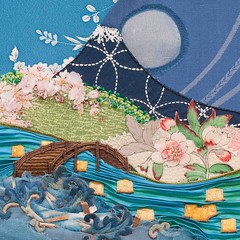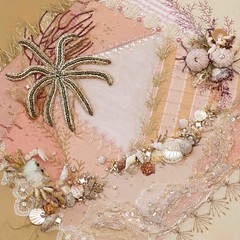(Note: Snow is the fifth of twelve books I've committed to read as part of the 1% Well-Read Challenge) Why Snow?
Why Snow?
Snow's author, Orhan Pamuk, is one of Turkey's most prominent writers and has sold over seven million books in seventy languages making him the country's best selling writer. He was awarded the Nobel Prize in Literature in 2006 and has become the first Turkish citizen to receive the award.
His novels are about hope, confusion and loss, brought on by his characters' and community's struggle between Western and Eastern values. The English translation of Snow was published in 2004 and the New York Times listed it as one of its 10 best books in 2004.
OK, so I tell you all of this so that you will understand why I chose to continue to work my way through this book for two solid months. This was not a book that you can't put down...in fact, I put this book down more times than I can count. The main reason being, this book is work. I mean, it's like work on the scale that sometimes studying great works of literature can require.
I did not enjoy this book but I'm not sure it's the fault of the author. As I read and worked, I came to believe that the reason I was not enjoying this book is because I could not relate to the characters or their situation. In this book, I represent the West -- and much of the religious and political context of this book is foreign to me -- as you might expect since I'm not Turkish.
The story takes place in an Eastern border city of Turkey called Kars (kar means "snow" in Turkish) when, Ka, a political exile and a poet is returning to the city after having been gone for 12 years having sought asylum in Germany. Ka is complex -- since leaving Turkey, he has not been happy and has been unable to write poetry. Ka returns under the pretense of investigating the suicides of a number of young girls who have been asked to remove their head-scarves while attending school. But the real reason for his return is that an old college friend, Ipek, is said to have divorced her husband and Ka hopes to kindle a love affair, propose marriage and whisk her away to Germany, where they can live happily ever after.
Ka enters Kars in the midst of a huge snowstorm which completely cuts the city off from the rest of the world for the duration of the book -- the phone lines are down, the streets are impassable -- and no one can arrive or leave the city. The city itself is poor and impoverished with a tremendous amount of conflict regarding the secular values of the State and Islamist fundamentalists. There are many political and ethnic groups which makes it tough to follow at times. But, I imagine, if you were a Turk you would grasp all of that quite easily. The book follows Ka through his investigations, through his attempts at winning Ipek's love, through his furious poetry writing (he writes 12 poems during his visit there); through a revolutionary military coup that he is drawn into, and through his personal peaks and valleys of happiness and despair.
Ka is not a hero and he is not even likable sometimes -- he often becomes whiny and meek in trying to persuade Ipek to leave with him; he often lies and doesn't stay true to his word and he ultimately causes the death of some innocent people as a result of his actions. And, the story is not told by Ka, but by a friend of Ka's (named Orhan!) who is an author researching Ka's poems written in Kars and re-tracing the history of Ka's trip there.
So, there are lots of reasons why this book was difficult to read. However, this book was an impressive work of fiction and I felt it was worthy of my struggle. And, I enjoy it more now, having researched the context a bit and learning more about the author and modern Turkey. The author, himself, has been criminally-charged by the state of Turkey and put on trial for speaking out against Turkey's treatment of the Kurds. He was released from prosecution in 2006 and now teaches at Columbia University.
Reading Snow, and making my way through it, is probably one of the main reasons why I decided to participate in the 1% Well-Read Challenge. Sure, it's easier to read books that I enjoy and can relate to, but how much growing am I really doing? Snow took me out of my complacent, American suburban life and threw me into the conflict and confusion of modern day Turkey -- where conflict exists within households and among friends over political, religious and ethnic issues and where the path to happiness and freedom is not always easy to find.
There were parts of the book that were very enjoyable -- mainly, the idea that Ka is finding God in the snow that is covering the city; that Ka feels divinely inspired at a moment's notice to find a place to write down his poems that just "come to him" from somewhere outside of himself; that Ka is an artist; and that Ka is seeking happiness and discussing it's pursuit and how he might define it. This caused me often to stop reading and reflect; and I suppose a little introspection is never a bad thing...
This book, along with Turkish history and culture, could have been a semester's long course at a University and I would be honored to take the course. And, if I ever see Mr. Pamuk's name on a lecture series down the road, I would love to hear him speak one day.
If you want to read a more masterful review, check out Margaret Atwood's from the New York
Times Book Review here.
And, if you're interested, this is a poignant excerpt from Orhan Pamuk's Nobel lecture which, I believe, reveals his core belief behind his writing...
Next up in the 1% Well-Read Challenge is The Things They Carried by Tim O'Brien. See you then.What literature needs most to tell and investigate today are humanity's basic fears: the fear of being left outside, and the fear of counting for nothing, and the feelings of worthlessness that come with such fears; the collective humiliations, vulnerabilities, slights, grievances, sensitivities, and imagined insults, and the nationalist boasts and inflations that are their next of kin ... Whenever I am confronted by such sentiments, and by the irrational, overstated language in which they are usually expressed, I know they touch on a darkness inside me. We have often witnessed peoples, societies and nations outside the Western world–and I can identify with them easily–succumbing to fears that sometimes lead them to commit stupidities, all because of their fears of humiliation and their sensitivities. I also know that in the West–a world with which I can identify with the same ease–nations and peoples taking an excessive pride in their wealth, and in their having brought us the Renaissance, the Enlightenment, and Modernism, have, from time to time, succumbed to a self-satisfaction that is almost as stupid.
—Orhan Pamuk, Nobel Lecture (translation by Maureen Freely)





















6 comments:
This certainly sounds like a tough book ... I'm glad it isn't on MY list for this challenge!
I have had a hard time reading my 1% books...most of them seem sad and depressing (or perhaps thats been my luck so far) :(
I havent given up though...as i am learning a lot...its just hard to justify trudging thru one of these books, when i have soooo many fun stories to chose from on my shelves :)
I think i will steer clear of this one, though i enjoyed your review!
You write the best book reviews. I love that you share the good, the bad and ugly about the books you read! Gives me great food for thought and more than once, you've inspired me to read something I probably wouldn't have otherwise read!
I see you have been reading Diana Gabaldon... one of my favorite authors! Would love to see a review of her books one of these days!
Perseverance! I knew there was more behind that charm.... Great review, Susan, of what sounds like a really difficult read. Have you read The Guernsey Literary and Potato Peel Pie Society? It's an interesting bit of history, well written, and a testimony for books/reading. I'll bet you'd enjoy it if you haven't already!
I think YOU would be able to teach literature, Susan...your review and insights into your own reaction to the book are worthy of study!
Congratulations on completing the read...and bringing it to us in such fine fashion.
Your review is right up there with Margaret Atwood's. In fact yours is better for me, because you wrote about how and why you continued to read a difficult-put-down book. I love the quote you included from Pamuk's acceptance speech.
I just heard two presentations by James Hubbell, a visionary architect. He said that the space between the edges of two different cultures is where beauty, understanding and energy resides. Seems you and Pamuk might agree with him? He also said that this space is the work of the artist! I might try to write a post about this concept...
Post a Comment